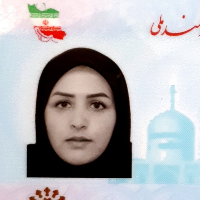Cervical cancer screening: The Investigation of the Effectiveness of a theory- based interventional study using expanded Protection Motivation Theory
A Pap smear test is one of the most effective procedures utilized for cervical cancer (CC) screening purposes. Nevertheless, many women do not like to do such a test. The present study aimed to monitor the impact of an educational intervention developed based on the expanded Protection Motivation Theory (PMT) on CC screening behavior.
A quasi-experiment was conducted on 200 women referred to Karaj health centers, Iran. The participants were randomized into experimental and control groups. The data was collected by a Standardized questionnaire including demographic characteristics, the constructs of the PMT, and a self-administered Emotional Social- Support questionnaire (ESS). They filled the questionnaire before, after, and at 6-months follow-up. Eight educational sessions based on the model were held for the experimental group via lecture, group discussions and role play. The data were analyzed by SPSS (Ver. 24) and repeated measures ANOVA and Chi-square test.
In the pre- intervention and post-intervention stages, the mean score of perceived susceptibility from 8/07±3/28 to 11/83±1/99, perceived severity from 12/64±3/46 to 15/19± 2/85,response efficacy from 12/66±5/37 to 16/06±3/6, self-efficacy from 25/94±5/38 to 29/68±4/68,emotional social support from 27/01±7/16 to 31/46±5/76 and intention from 11/01±2/14 to 13/42±1/65 increased and this difference was statistically significant (p<0/05). The mean score of fear from 10/37±2/29 to 5/54±2/76 and response cost from 6/62±2/13 to 3/97±1/69 decreased and that was statistically significant (p<0/05). No significant difference was observed in the control group. Besides, the Pap smear test was increased after the educational intervention in the post-test and follow-up in the experimental group (p<0/05).
Based on the findings, PMT and ESS can be used as a framework for designing educational programs to promote CC screening behavior.
-
Comparison of the Effectiveness of Group Therapies based on Acceptance and Commitment and Schema on Coping Style Avoidance and Body Mass Index in Obese and Overweight People with Emotional Eating
Iman Najjar Kakhki, Maryam Kalhornia Golkar *, Atefeh Nezhadmohammad Nameghi, Fatemeh Mohammadi Shirmahaleh, Majid Valizadeh
Journal of Applied Psycology Research, -
The effectiveness of Motivational Interview on educational procrastination and online game addiction of adolescents
Kimia Shokri, Hossein Entezari *, , Shadi Saketghalb Langeroodi, Nasim Samadifard
Medical Journal of Mashhad University of Medical Sciences, -
Effectiveness of schema therapy mode model on emotional eating and BMI of obese women binge eating disorder
Maryam Motiee Amin, Saba Kharghani *, , Parya Sadat Sayadi, Mohammad Reza Hajrezaei
Medical Journal of Mashhad University of Medical Sciences, -
The effect of aromatherapy with Polianthes’s tuberosa on postpartum depression in high-risk pregnancies: A double blind randomized placebo-controlled clinical trial
Leily Salehi *, Mitra Farajnejad, Sara Esmailzadeh Saieh
Iranina Journal of Obstetrics Gynecology and Infertility, -
Efficacy of Self-Compassion Training on the Perceived Stress and Psychological Coherence in Elderly Caregivers
Fatemeh Masoudi, *, Parvane Ghodsi
Avicenna Journal of Nursing and Midwifery Care, -
Fiber consumption among constipated older adults: a theory-based interventional study
M. Ghanbari, F. Rajati, L. Salehi*
Health Education and Health Promotion, Summer 2023



